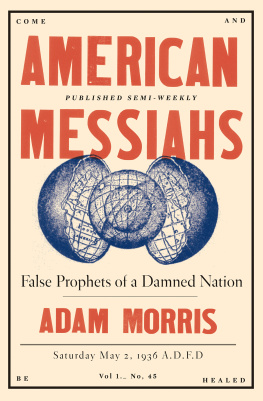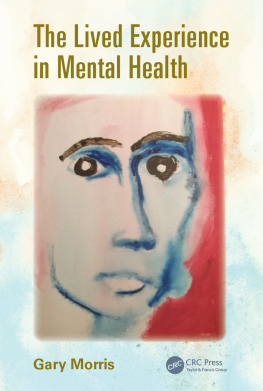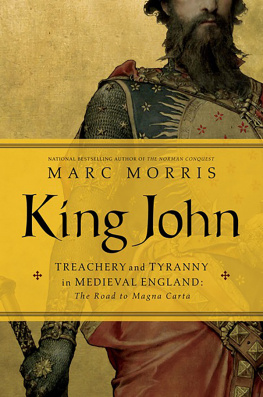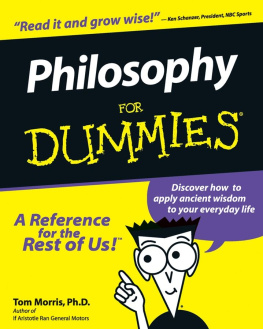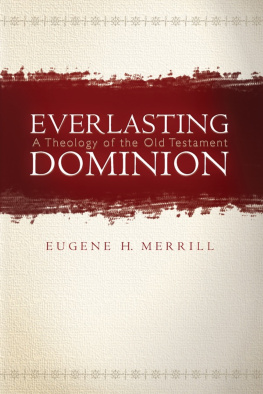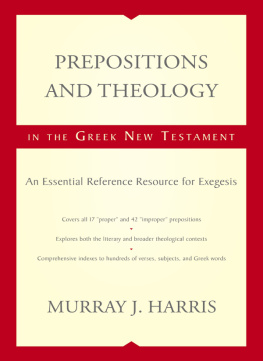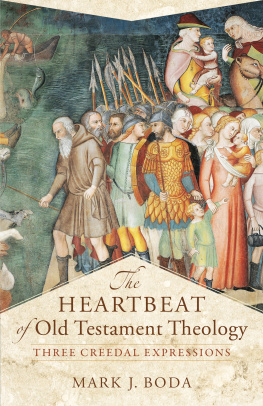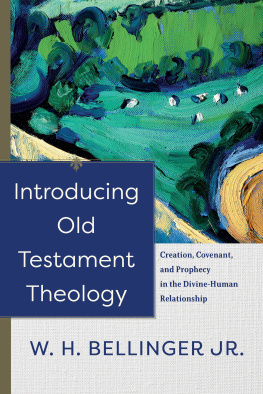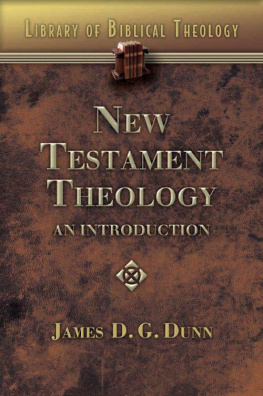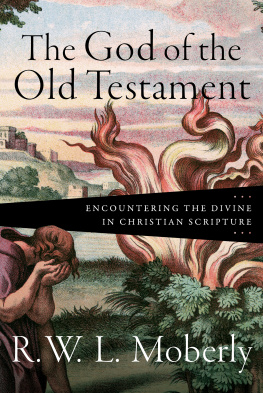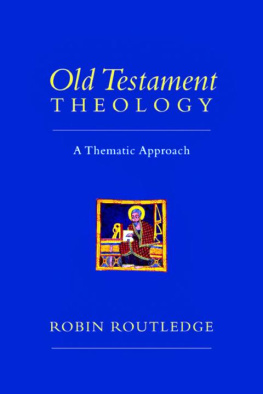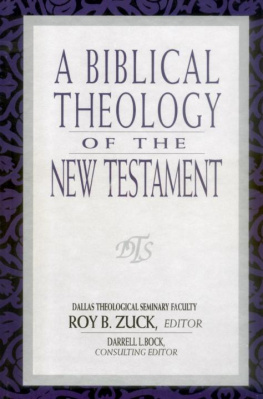Morris - New Testament theology
Here you can read online Morris - New Testament theology full text of the book (entire story) in english for free. Download pdf and epub, get meaning, cover and reviews about this ebook. City: Grand Rapids, Mich, year: 1986, publisher: Academie Books,Zondervan, genre: Religion. Description of the work, (preface) as well as reviews are available. Best literature library LitArk.com created for fans of good reading and offers a wide selection of genres:
Romance novel
Science fiction
Adventure
Detective
Science
History
Home and family
Prose
Art
Politics
Computer
Non-fiction
Religion
Business
Children
Humor
Choose a favorite category and find really read worthwhile books. Enjoy immersion in the world of imagination, feel the emotions of the characters or learn something new for yourself, make an fascinating discovery.

New Testament theology: summary, description and annotation
We offer to read an annotation, description, summary or preface (depends on what the author of the book "New Testament theology" wrote himself). If you haven't found the necessary information about the book — write in the comments, we will try to find it.
New Testament theology — read online for free the complete book (whole text) full work
Below is the text of the book, divided by pages. System saving the place of the last page read, allows you to conveniently read the book "New Testament theology" online for free, without having to search again every time where you left off. Put a bookmark, and you can go to the page where you finished reading at any time.
Font size:
Interval:
Bookmark:

| BAGD | Walter Bauer, A Greek-English Lexicon of the New Testament and Other Early Christian Literature, ed. William F. Arndt and F. Wilbur Gingrich, 2d ed., rev. F. Wilbur Gingrich and Frederick W. Danker (Chicago, 1979) |
| CBQ | Catholic Biblical Quarterly |
| Chmn | The Churchman |
| ExpT | The Expository Times |
| HTR | The Harvard Theological Review |
| IB | The Interpreters Bible, ed. George A. Buttrick, 12 vols. (Nashville, 1952-57) |
| IBD | The Illustrated Bible Dictionary, 3 vols. (Leicester, 1980) |
| IBNTG | C. F. D. Moule, An Idiom Book of New Testament Greek (Cambridge, 1953) |
| IDB | The Interpreters Dictionary of the Bible, ed. George A. Buttrick and Keith R. Crim, 6 vols. (Nashville, 1976) |
| Int | Interpretation |
| MM | James Hope Moulton and George Milligan: The Vocabulary of the Greek Testament (London, 1914-29) |
| NIDNTT | The New International Dictionary of New Testament Theology, ed. Colin Brown, 3 vols. (Grand Rapids, 1975-78) |
| NTS | New Testament Studies |
| RTR | The Reformed Theological Review |
| SBK | Hermann L. Strack und Paul Billerbeck: Kommentar zum Neuen Testament aus Talmud und Midrasch, 4 vols. (Mnchen, 1922-28) |
| SJT | The Scottish Journal of Theology |
| TDNT | Gerhard Kittel and Gerhard Friedrich, eds., Theological Dictionary of the New Testament, 10 vols. (Grand Rapids, 1964-76) |
| Theol | Theology |
| TynBul | Tyndale Bulletin |
| WTJ | The Westminster Theological Journal |
The aim of this book is to provide a compact introduction to the theology of the New Testament. The subject is a big one, as the existence of several massive volumes testify, but I have not sought to add yet another large work. Rather I have tried to steer a middle course between being unhelpfully brief and being too long and technical for the student or the interested layman. If such readers are stimulated to tackle the larger works, I will be well rewarded. In pursuing my aim I have not gone deeply into the controversies that interest the scholarly world, though I hope I have written with reasonable awareness of what scholars are saying. I have simply tried to set out the principal theological teachings of the books of the canonical New Testament as I see them, without trying to interact with scholarly theories. I would prefer to have provided more adequate documentation, but that too would have lengthened the book unduly.
Unless otherwise noted, I have used the New International Version for quotations from the Old Testament. I have made my own translation for quotations from the New Testament; this gives the reader the advantage of seeing what I understand the meaning of the Greek to be and, of course, the disadvantage of the limitations of a personal translation. I encourage the reader to check my readings against the standard translations.
I express my gratitude to ANZEA, the publishers of the forthcoming Festschrift for D. Broughton Knox, for permission to use my contribution to that work, The Apostle Paul and His God.
Leon Morris
Although New Testament Theology is the title of a large number of books, its precise meaning is far from obvious. Part of the problem stems from different ways of using the word theology. Thus Rudolf Bultmann has a notable two-volume work entitled Theology of the New Testament in which he discusses a good deal of the New Testament. Two of his major sections are entitled The Theology of Paul and The Theology of the Gospel of John and the Johannine Epistles, but his other major divisions are Presuppositions and Motifs of New Testament Theology (in which he includes the chapters The Message of Jesus, The Kerygma of the Earliest Church, and The Kerygma of the Hellenistic Church Aside From Paul) and The Development Toward the Ancient Church. This appears to mean that, although his book title refers to theology of the New Testament, he finds theology in only two places, the Pauline and the Johannine writings. He expressly differentiates the teaching of Jesus from theology, for his opening sentence reads, The message of Jesus is a presupposition for the theology of the New Testament rather than a part of that theology itself. It would seem from this classification that most of the New Testament is not theology, and in any case it seems that there are two theologies, and not one.
W. G. Kmmel, by contrast, has a book whose full title is The Theology of the New Testament According to Its Major Witnesses: JesusPaulJohn. This appears to mean that there is such a thing as the the theology of the New Testament, though a doubt remains because, while there is a chapter called The Theology of Paul, the other chapter headings lack this key word (The Proclamation of Jesus According to the First Three Gospels, The Faith of the Primitive Community, etc.). In any case he disenfranchises most of the writers. It cannot be said that Kmmel deals with the theology of the New Testament.
A similar comment can be made about Hans Conzelmanns Outline of the Theology of the New Testament. The table of contents indicates that the treatment is in five parts: The Kerygma of the Primitive Community and the Hellenistic Community, The Synoptic Kerygma, The Theology of Paul, The Development After Paul, and John. If we take this outline seriously, only one part deals specifically with theology.
Donald Guthrie approaches the subject thematically. He takes the great subjects dealt with in the New Testament and surveys the contributions made by all the writers to each of his themes.
It is clear that theology may be understood in more ways than one. Geoffrey W. Bromiley defines it briefly in this way: Strictly, theology is that which is thought and said concerning God. The Shorter Oxford English Dictionary sees it as The study or science which treats of God, His nature and attributes, and His relations with man and the universe. Clearly it refers to disciplined thinking about God, and we might understand it in this sense: A coherent system of ideas that interpret in logical fashion matters relating to God. Perhaps it would be better to say, that in principle is capable of interpreting, for our theologies are not always as coherent and effective as we would wish. But they do represent our attempt at setting out in orderly fashion our understanding of God and his revelation in Christ, and of what all this means for his worshipers. New Testament theology will then be that understanding of matters relating to God that is expressed by, or underlies, or may be deduced from, the New Testament. It will not necessarily always be expressed in set terms by the New Testament writers, but it will be implied in what they have said, for what they say always has as its basis their understanding of the ways of God. It we take the term New Testament seriously, we will resist the temptation to discard passages or books that we see as of inferior importance or even unauthentic. Everything in the New Testament is part of the thinking of the early church, whether it goes back to Jesus himself or to one of his followers.
Font size:
Interval:
Bookmark:
Similar books «New Testament theology»
Look at similar books to New Testament theology. We have selected literature similar in name and meaning in the hope of providing readers with more options to find new, interesting, not yet read works.
Discussion, reviews of the book New Testament theology and just readers' own opinions. Leave your comments, write what you think about the work, its meaning or the main characters. Specify what exactly you liked and what you didn't like, and why you think so.

